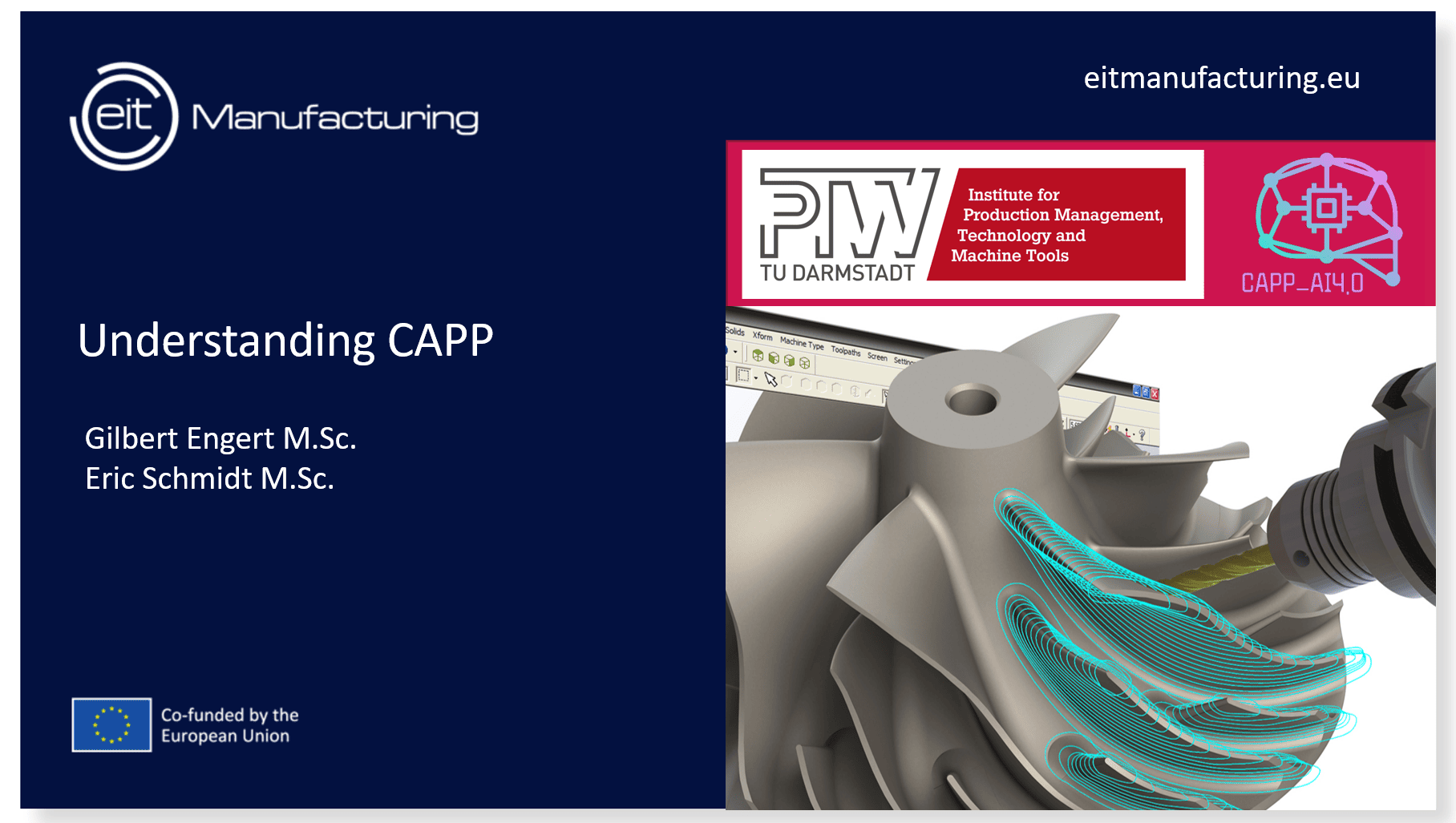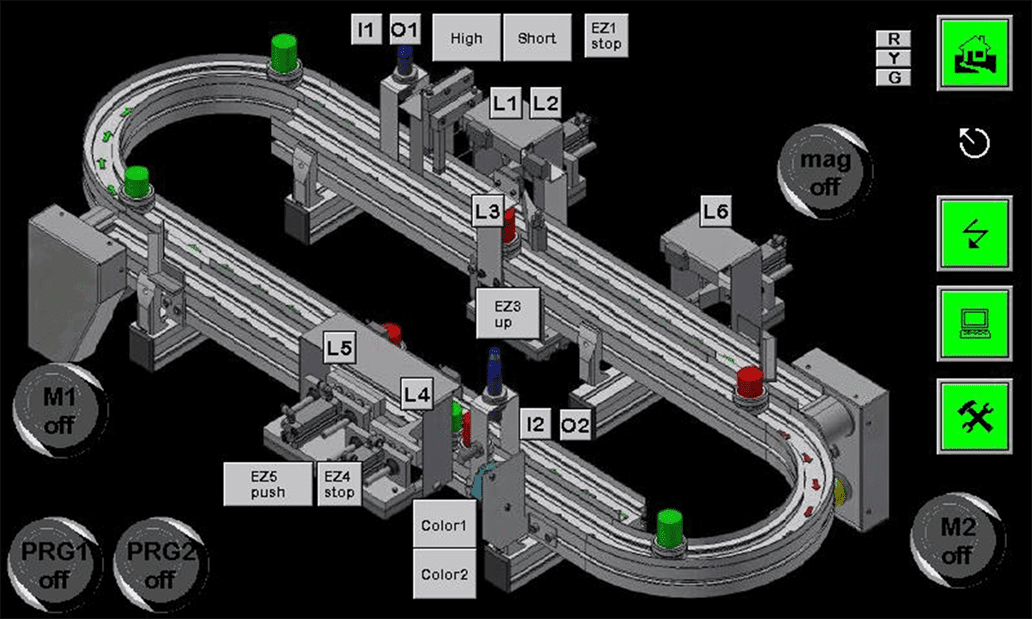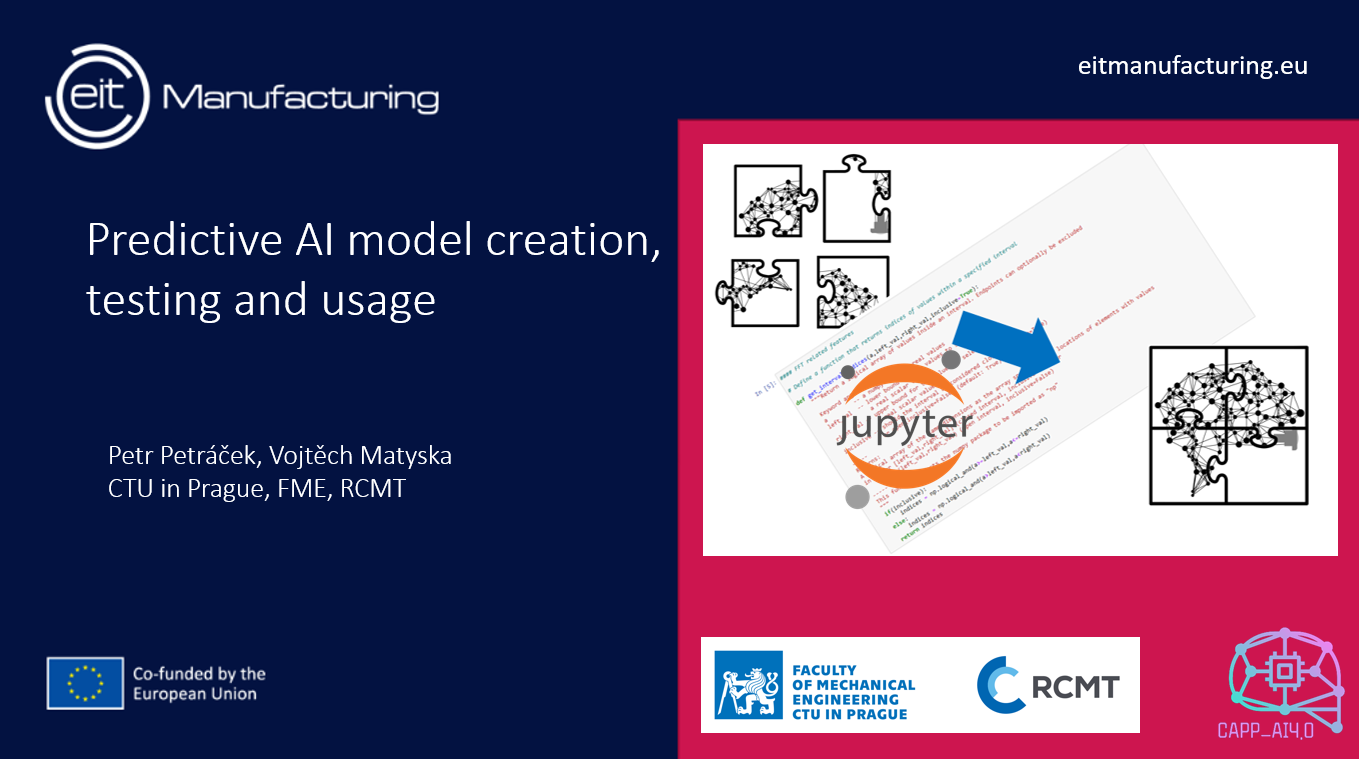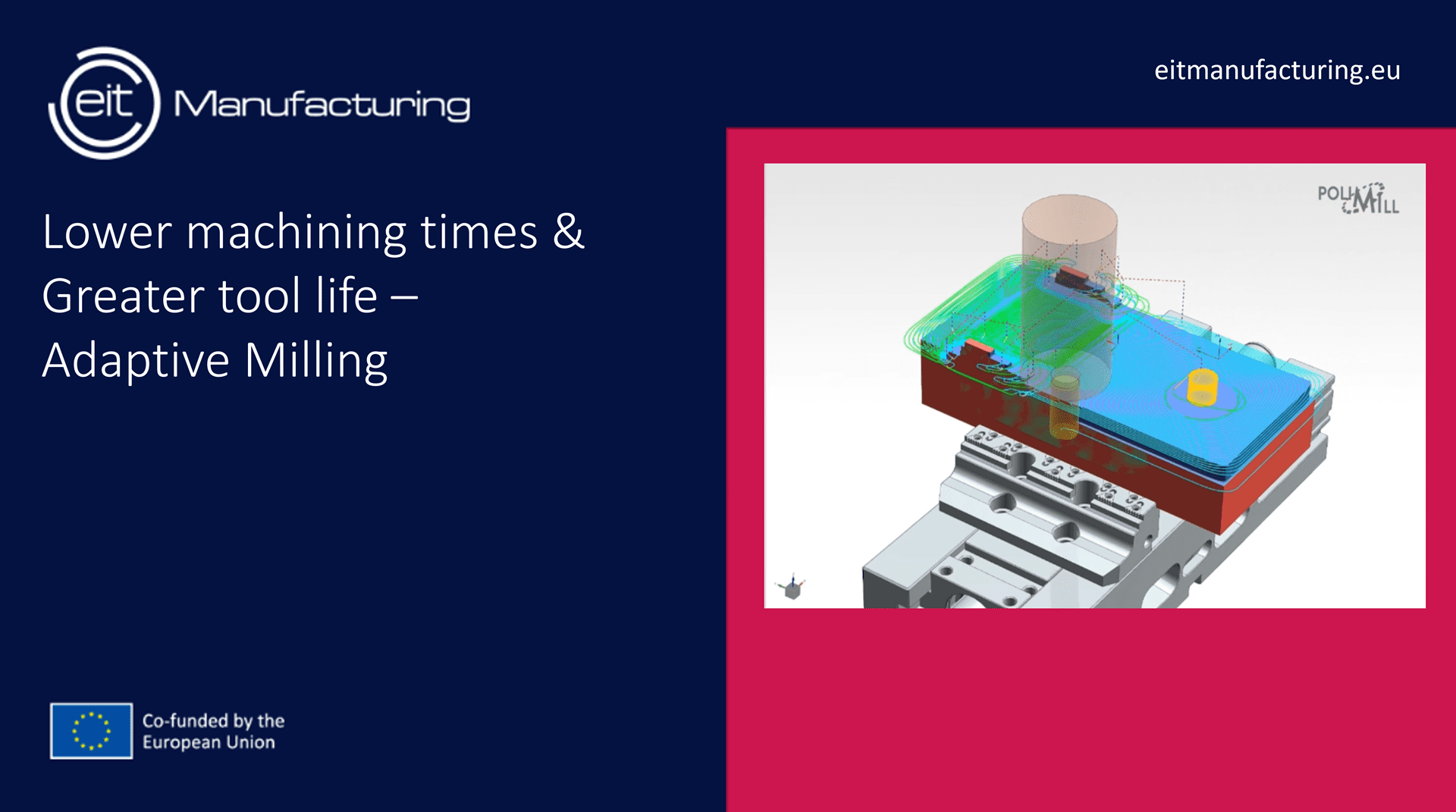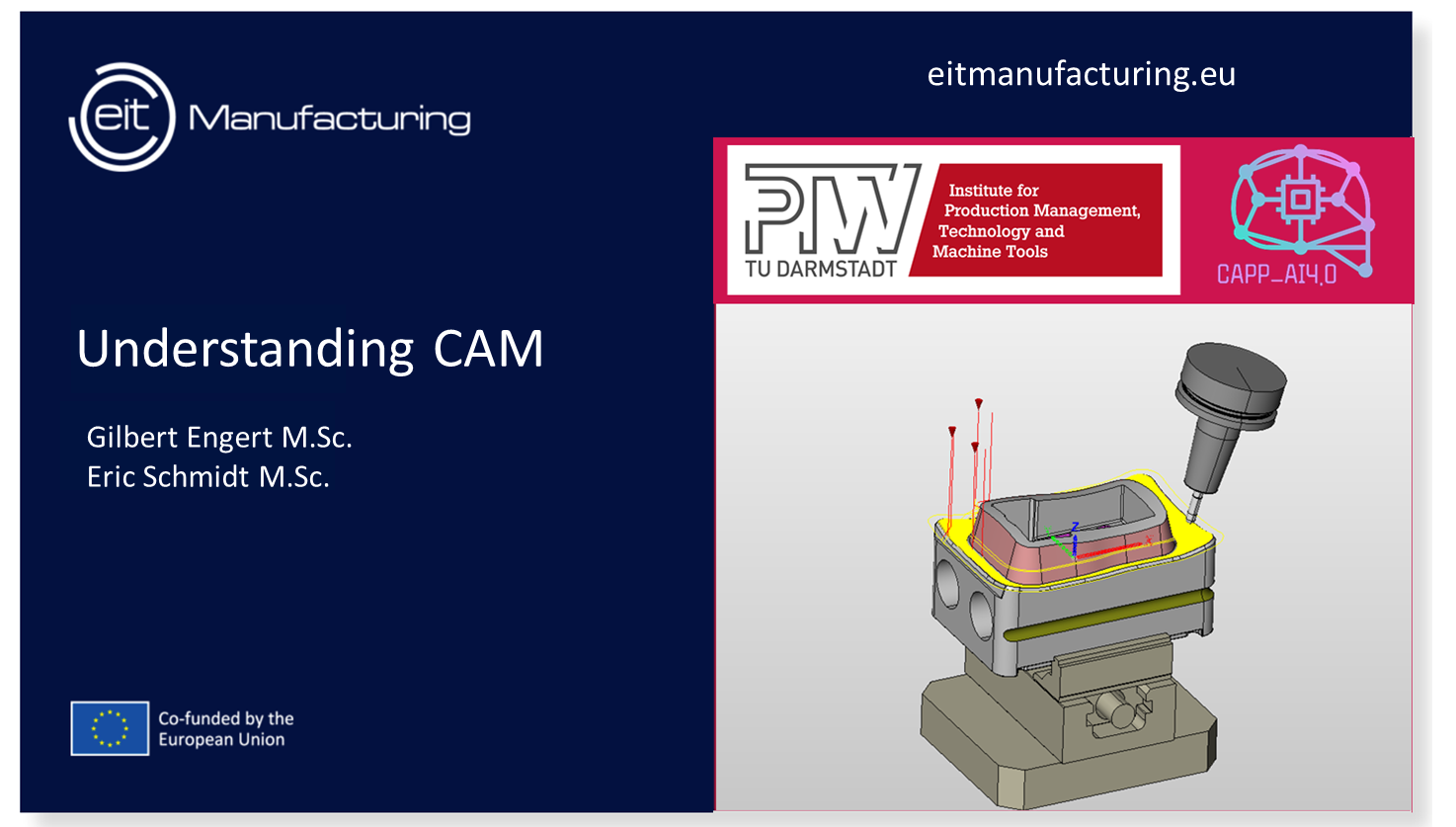Empower your learning journey: dive into our digital trainings!
Discover EIT Manufacturing Academy’s comprehensive collection of digital trainings, covering a wide range of manufacturing topics and learning objectives. Tailor your learning experience with filters that match your specific interests and needs. Benefit from the flexibility of online learning, allowing you to enhance your skills on your own schedule, wherever you are.
Understanding computer-aided process planning: An introduction to its fundamentals
This nugget gives a short overview over a CAPP system. After a definition and a basic functionality, the main two approaches to CAPP software are explained. This is followed by an explanation of the benefits of using a CAPP system.
Typy danych i deklaracja zmiennych w PLC
Informacje o typach danych i deklaracji zmiennych w programowaniu sterowników PLC
Introduction to the data types and variable declarations in the PLC programming
Intermediate,Intermediate
Stanowisko technodydaktyczne do programowania pulpitów operatora HMI w zakresie transportu technologicznego
Uczący się uzyska przydatne informacje na temat stosowania paneli HMI
Introduction to the technical specification of the techno-educational stand for PLC programming in the internal technological transport with its physical model
Digital Twin (DT) – is a set of virtual information constructs that fully describes a potential or actual physical manufactured product from the micro atomic level to the macro geometrical level.
Predictive AI model creation, testing and usage
Guide on how to train a predictive AI model using prepared feature sets, how to evaluate the model and how to use it in real-like conditions.
Lower Machining times & Greater Tool Life - Adaptive Milling
The nugget provides an illustration of advanced tool path generation that partially optimises the NC programme, enabling users to achieve significant performance gains. For example, this strategy enables users to double the MRR (material removal rate) thanks to extremely high axial engagements and extremely small radial engagements, significantly increasing productivity. To get the optimal toolpath generation in terms of performance and process quality, many approaches are presented and debated.
Understanding CAM: An introduction to its fundamentals
Welcome to the learning nugget: Understanding CAM. In this nugget, we explore the basics of CAM, its differences from CAD (Computer-Aided Design), the processes involved, and its applications in various industries. We discuss the advantages of using CAM technology to improve production processes, reduce costs, and produce high-quality products efficiently. Join us as we dive into the world of CAM and discover how this powerful technology is shaping the future of manufacturing.


